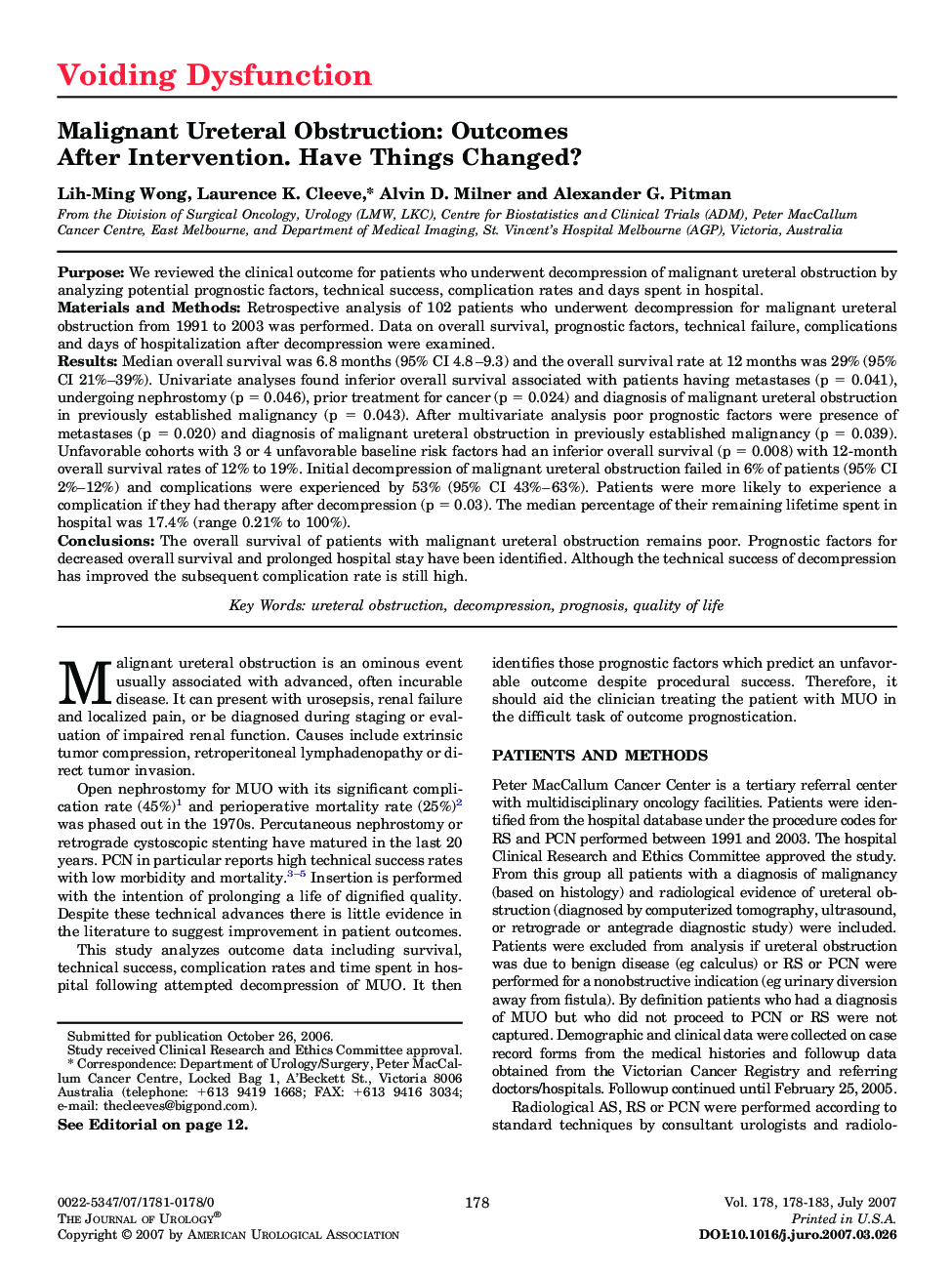| Article ID | Journal | Published Year | Pages | File Type |
|---|---|---|---|---|
| 3878523 | The Journal of Urology | 2007 | 6 Pages |
PurposeWe reviewed the clinical outcome for patients who underwent decompression of malignant ureteral obstruction by analyzing potential prognostic factors, technical success, complication rates and days spent in hospital.Materials and MethodsRetrospective analysis of 102 patients who underwent decompression for malignant ureteral obstruction from 1991 to 2003 was performed. Data on overall survival, prognostic factors, technical failure, complications and days of hospitalization after decompression were examined.ResultsMedian overall survival was 6.8 months (95% CI 4.8–9.3) and the overall survival rate at 12 months was 29% (95% CI 21%–39%). Univariate analyses found inferior overall survival associated with patients having metastases (p = 0.041), undergoing nephrostomy (p = 0.046), prior treatment for cancer (p = 0.024) and diagnosis of malignant ureteral obstruction in previously established malignancy (p = 0.043). After multivariate analysis poor prognostic factors were presence of metastases (p = 0.020) and diagnosis of malignant ureteral obstruction in previously established malignancy (p = 0.039). Unfavorable cohorts with 3 or 4 unfavorable baseline risk factors had an inferior overall survival (p = 0.008) with 12-month overall survival rates of 12% to 19%. Initial decompression of malignant ureteral obstruction failed in 6% of patients (95% CI 2%–12%) and complications were experienced by 53% (95% CI 43%–63%). Patients were more likely to experience a complication if they had therapy after decompression (p = 0.03). The median percentage of their remaining lifetime spent in hospital was 17.4% (range 0.21% to 100%).ConclusionsThe overall survival of patients with malignant ureteral obstruction remains poor. Prognostic factors for decreased overall survival and prolonged hospital stay have been identified. Although the technical success of decompression has improved the subsequent complication rate is still high.
